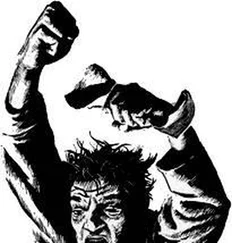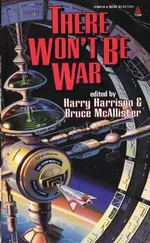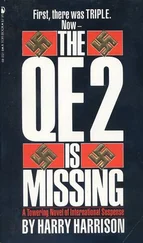Гарри Гаррисон - To The Stars
Здесь есть возможность читать онлайн «Гарри Гаррисон - To The Stars» весь текст электронной книги совершенно бесплатно (целиком полную версию без сокращений). В некоторых случаях можно слушать аудио, скачать через торрент в формате fb2 и присутствует краткое содержание. Жанр: Фантастика и фэнтези, на английском языке. Описание произведения, (предисловие) а так же отзывы посетителей доступны на портале библиотеки ЛибКат.
- Название:To The Stars
- Автор:
- Жанр:
- Год:неизвестен
- ISBN:нет данных
- Рейтинг книги:3 / 5. Голосов: 1
-
Избранное:Добавить в избранное
- Отзывы:
-
Ваша оценка:
- 60
- 1
- 2
- 3
- 4
- 5
To The Stars: краткое содержание, описание и аннотация
Предлагаем к чтению аннотацию, описание, краткое содержание или предисловие (зависит от того, что написал сам автор книги «To The Stars»). Если вы не нашли необходимую информацию о книге — напишите в комментариях, мы постараемся отыскать её.
To The Stars — читать онлайн бесплатно полную книгу (весь текст) целиком
Ниже представлен текст книги, разбитый по страницам. Система сохранения места последней прочитанной страницы, позволяет с удобством читать онлайн бесплатно книгу «To The Stars», без необходимости каждый раз заново искать на чём Вы остановились. Поставьте закладку, и сможете в любой момент перейти на страницу, на которой закончили чтение.
Интервал:
Закладка:
“An historical moment,” he said. “The beginning of the first battle of the first war in space. May it end in a victory for our forces. The entire future rests upon its outcome.”
Nineteen
“He’s up to something,” Kapustin said, concern but not worry in his voice. His trap was prepared. All that Skougaard could do was fall into it. In the Tank the ships of the enemy fleet were coming together, blinking out of sight one by one, until apparently only two remained. While the holograph presented a three dimensional image, all it had now was a two dimensional picture to work with.
“They are going into space drive!” Kapustin shouted. “Trying to escape me!”
“That cannot happen, Admiral Comrade Kapustin,” Onyegin said, formulating his words carefully before he spoke. The hardest part of his job was giving the Admiral information in such a way that he could imagine he had thought of it himself. “You were the one who first explained to me that because of the interlocking gravity fields the Foscolo space drive could not be used this close to a planet. Something far simpler is happening. They are forming two lines astern.
“Obviously. Any fool can tell that. Do not waste my time by explaining the obvious. But have you noticed that their courses have changed as well? Keep your eyes open, Onyegin, and you will learn one or two things.”
It was hard not to be aware of the number of changes taking place as the flashing arrows rotated and changed positions, the displayed numbers changing as well. While this was happening the Tank operators took time to program in two lines of ships in the Tank. It meant nothing but would please the Admiral. Which was always their first order of priority.
“I want some predictions where these new courses are taking them. And fire some missiles, atomic ones. They’ll be wetting their drawers when they arrive.”
“A limited supply… rather early don’t you think… perhaps other missiles…”
“Shut up and do as ordered.”
The words were quiet and toneless and Onyegin went cold, knowing he had overstepped himself. “Of course, instantly, a logically perfect idea!”
“And give me some predictions where these new orbits are heading.”
Curving cones of light appeared in the Tank, emanating from two approaching squadrons. At first the cones engulfed great areas of space, including the entire Earth and a number of satellites. As further information came in from the radar sweeps the cones narrowed, shrinking to two lines again once the orbit changes had been made.
“Two separate strikes,” Kapustin said, glancing back and forth from one to the other. “The first aiming at our Lunar bases. Fiffe. The missile batteries there will destroy them as they come close. And the other, where is it going?”
“Apparently toward geostationary orbit. There are any number of satellites out there. It could be…”
“It could be anything. And it doesn’t matter. They’ll be dead and dispersed into thin atomic gas long before they get there. We’ll divide our forces as well. I want both squadrons to intercept, cut directly across the course of those ships. They will have to get through us to attack Earth and that will be no easy thing.”
It was a battle of invisible forces, electrons in computers — light waves and radio waves in space. Neither of the opposing fleets could see each other visibly yet; this might never happen even after battle was joined. They were still thousands of miles from each other. Though closing rapidly, their tiny gleaming images would be invisible against the burning stars, even to a watcher in space. Only the explosion of the atomic missile could have been seen. These sailors of the starways were the true descendents of the first seagoing navies where large guns reached out over the horizon to destroy an enemy that was completely out of sight.
Closer the opposing columns swept, and still closer, until on astronomical terms they had merged into a single object. They still could not see each other. Only their optical telescopes, fitted with electronic magnification, could produce visible images. Admiral Kapustin looked at the enlarged outline of the Dannebrog that now filled the screen; he nodded grimly.
“The second squadron will do as I do, fire when I do. There will be no independent command. Nor will any other ships attempt to approach the Dannebrog after she is gutted. She’s my prey, Fire a scattered missile pattern. Shake them up.”
Aboard the Dannebrog Admiral Skougaard smiled and slapped his knee.
“Look at that fool,” he told Jan, pointing to one of the displays. “Spending his irreplaceable missiles like pocket money,” The computer kept a running tally of all enemy missiles destroyed or averted. “Basically he is just a stupid man with no idea of tactics. I imagine he thinks that he can beat us by the use of brute force. Which could be possible if he waited until we closed, then our defenses could be overwhelmed and beaten down by sheer numbers of missiles. However we have a few surprises in store, so that tactic will not work either.”
“Main cannon firing has commenced,” the computer said.
Though the central axis of the line of ships was pointed at the opposing squadron, it was angled toward the invisible track in space down which the enemy was moving. The two big gun ships were pointing at that track — and they now began firing. Two continuous streams of iron spheres hurtled outward toward the point in space where the enemy would soon be. Stern jets flared on the gun ships to keep them in position, to counteract the backward thrust of the cannonballs. The speeding streams of metal looked like pencils of light on the radar screen, moving so fast that they were soon out of sight. Only the blips of the defensive missiles remained, resembling a second and larger fleet moving ahead of them. Their radar reflectors, gauss fields and heat sources were designed to lead attacking missiles astray,
On board the Stahn, Kapustin was not as pleased as he should have been.
“Are there technical errors? This cannot be true,” he said, pointing to the set of numbers that displeased him.
“There are always errors, sir,” Onyegin said. “But they would be only a small percentage of the final figure.”
“Yet this stupid machine keeps telling me that there have been no hits on the enemy fleet. None at all. Yet with my own eyes I can see the explosions.”
“Yes, Admiral. But those are decoys to draw our fire. After each contact our monitoring missiles radar-sweep the area of the explosion for debris. They can tell by the mass of debris whether a ship was destroyed or another missile. But you must remember that with each explosion one of his decoys is destroyed. Since we have far more missiles than they have, we will win in the end.”
Kapustin was slightly mollified, but not completely pleased. “And where are his missiles? Isn’t the coward going to fire back?”
“Since he has a much smaller quantity, I imagine he will wait until the range has closed to exact the most value from them. But our defense screen is out there in front of us and will not be penetrated.”
The timing of the remark was most unfortunate. A moment after the words had left Onyegin’s lips the alarms sounded. OBJECTS ON COLLISION COURSE was spelled out in letters of fire and screamed aloud at the same time. Almost instantaneously after this damage reports began coming in from ship after ship. The Admiral stared, horrified, at the vision screen that showed debris spraying from his spaceships; one of them exploded in a gout of flame as he watched.
“What is it? What is happening?” he shouted.
“Meteorite field!” Onyegin said, though he knew that could not be possible.
The Admiral seemed paralyzed by the disaster, sitting gape-jawed in his chair. Onyegin called for a display of what had caused the damage. Although the entire encounter had been over with in less than a second, the computer had recorded the action and now replayed it at slow speed. The first sign of approaching trouble was a wall or a bar that swept in from space across their track. It was at least two kilometers long and speeding with great precision in a collision course. Then the impact. It had to be enemy action. When a section was enlarged he could see that the apparently solid bar was made up of discrete units of matter. Gaps appeared in it as defensive missiles exploded, but it made little difference to the overall strength. It struck.
Читать дальшеИнтервал:
Закладка:
Похожие книги на «To The Stars»
Представляем Вашему вниманию похожие книги на «To The Stars» списком для выбора. Мы отобрали схожую по названию и смыслу литературу в надежде предоставить читателям больше вариантов отыскать новые, интересные, ещё непрочитанные произведения.
Обсуждение, отзывы о книге «To The Stars» и просто собственные мнения читателей. Оставьте ваши комментарии, напишите, что Вы думаете о произведении, его смысле или главных героях. Укажите что конкретно понравилось, а что нет, и почему Вы так считаете.
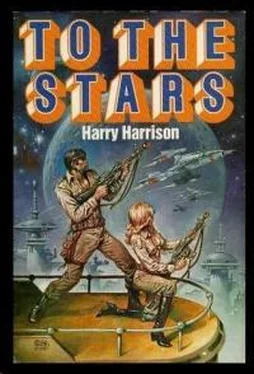
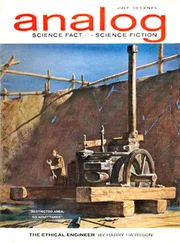
![Гарри Гаррисон - Bill, the Galactic Hero [= The Starsloggers]](/books/87536/garri-garrison-bill-the-galactic-hero-the-star-thumb.webp)


